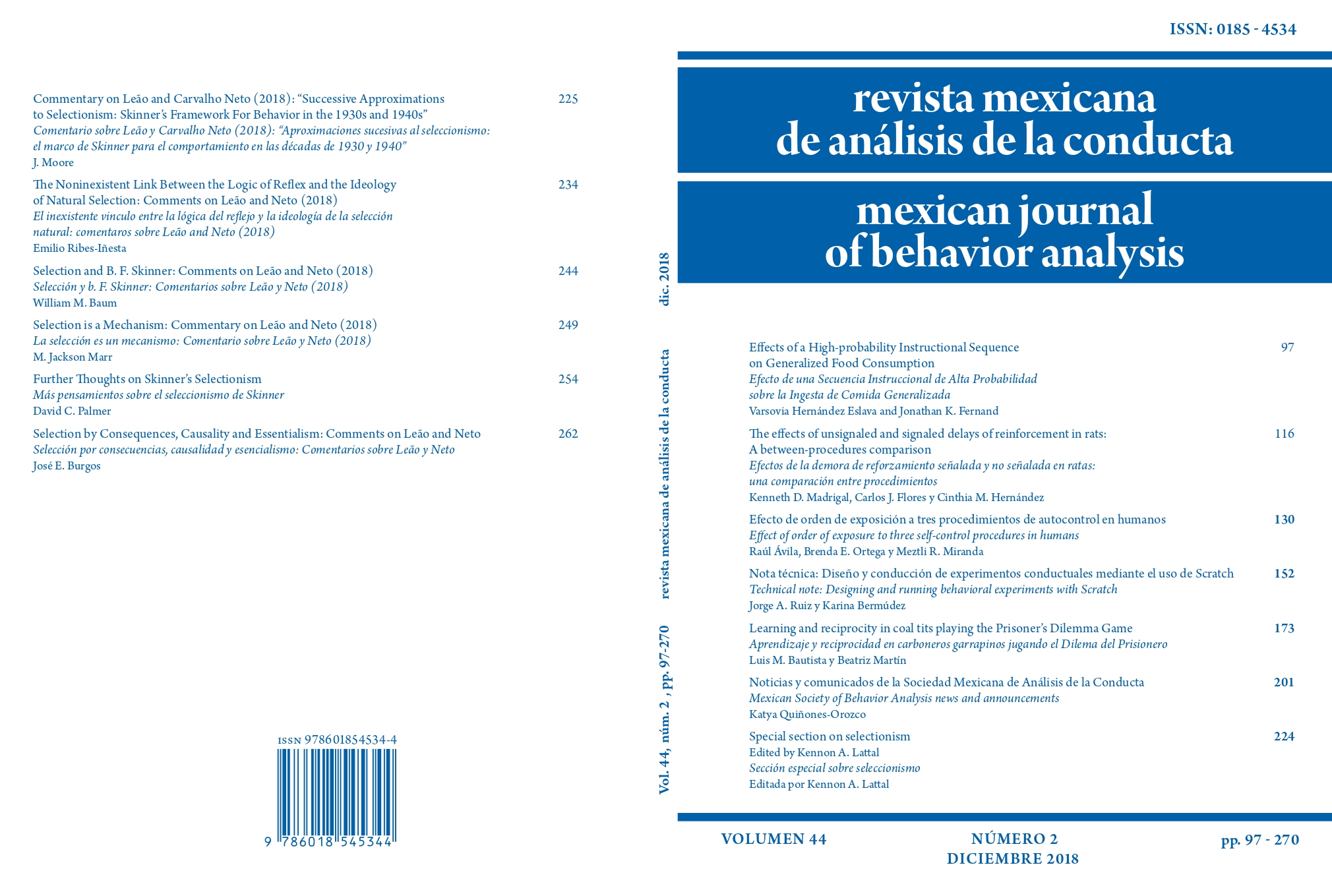The effects of unsignaled and signaled delays of reinforcement in rats: A between-procedures comparison
Main Article Content
Abstract
Using eight experimentally naive Wistar rats, the effects of immediate, unsignaled and signaled delays of reinforcement on lever-pressing response rates were compared with two different procedures. In the Between-Phases procedure, each experimental condition was presented in three thirty-session consecutive phases; whereas, in the Multiple-Schedule procedure, each experimental condition was correlated with one component of a three-component multiple schedule of reinforcement. Regardless of the procedure used, consistent results were observed, that is, differences in response rates were found when rats were exposed to a delay of reinforcement condition (Signaled or Unsignaled) in contrast to the immediate-reinforcement condition. These results suggest that even when rats are exposed to different conditions in the same session, similar results occur to those found when these conditions are arranged between phases. Similarly, they provide some information regarding the usefulness of employing a multiple schedule to assess the effects of different variables (Immediate, Unsignaled, and Signaled food deliveries) in relatively less time than a between-phases procedure.
